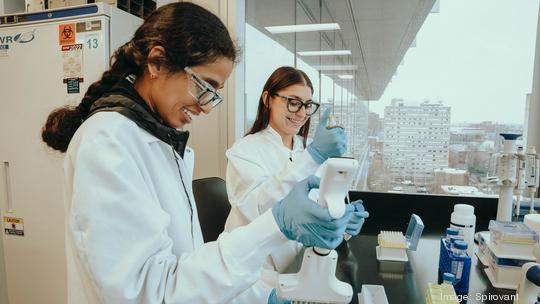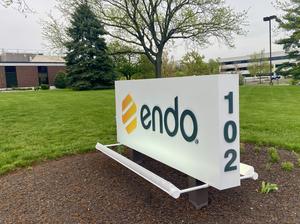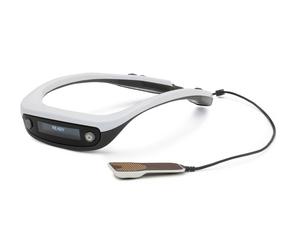
This week's news out of the Philadelphia-area life sciences industry includes a gene therapy company's new headquarters, the progress of a gene therapy for a heart ailment, new hope for a potential melanoma treatment, and more.
Here is the roundup:
Spirovant Sciences
The gene therapy company developing treatments for respiratory diseases officially opened its new 9,600-square-foot research laboratory and corporate headquarters in the University City section of Philadelphia.
Spirovant's new research facilities at 3675 Market St. in uCity Square will allow the company to accelerate development of its lead new drug candidate targeting cystic fibrosis and provide space to support the vector manufacturing and grow its new product pipeline.
"We will redouble our efforts to develop promising treatments and cures for patients with respiratory disease" said Joan Lau, CEO of Spirovant.

Spirovant, which has grown to 40 employees, previously occupied co-working lab space in University City.
John Grady, senior vice president and northeast region executive for Wexford Science and Technology, developer of the uCity Square knowledge community, called Spirovant a leading example of the success of Philadelphia's "booming" cell and gene therapy ecosystem.
"[Spirovant] is a company that started here, stayed here and has grown here," Grady said. We are excited they have chosen to continue growing their team and their therapies here in uCity Square."
Spirovant is a wholly owned subsidiary of New York City-based Sumitovant Biopharma.
XyloCor
The Wayne-based biopharmaceutical company presented positive early-stage clinical testing data for XC001, its experimental gene therapy under development to treat refractory angina.
The release of the data positions XyloCor as one of the companies furthest along in terms of developing a gene therapy for a cardiovascular indication, which has a much larger patient pool than the rare inherited diseases that most gene therapies are targeting.
Chronic angina pectoris occurs when the heart muscle does not receive sufficient oxygen, resulting in chest pain.
XyloCor's therapy is designed to activate naturally occurring biological pathways by creating new vessels to improve blood flow to areas of the heart not receiving adequate blood supply. This restored blood supply could potentially improve patients’ quality of life by enabling them to resume physical activities and it could reduce episodes of chest pain associated with refractory angina.

The company has a second product, XC002, in preclinical testing as a potential treatment for patients with cardiac tissue damage from heart attacks.
XyloCor was co-founded in 2013 by Dr. Ronald Crystal and Dr. Todd Rosengart. Its CEO is Al Gianchetti, a former GlaxoSmithKline executive. The company has an exclusive technology license with Cornell University.
Idera Pharmaceuticals
Investigators conducting a non-Idera-sponsored clinical trial of the company's experimental melanoma treatment, called tilsotolimod, stopped enrollment in the study early based on the positive interim results generated by the Phase 2 study.
Such action is taken by investigators in drug studies who have an ethical responsibility to offer a more effective treatment to all study participants, including those receiving a placebo.
“This is an exciting result and we are pleased for the patients and their families to whom it offers hope for the future,” said Vincent Milano, CEO of Exton-based Idera (NASDAQ: IDRA).

Milano said the Phase 2 study results, together with data supporting tilsotolimod’s mechanism of action and "encouraging" safety profile from across the array of earlier pre-clinical and clinical work, reinforce the potential of tilsotolimod to offer benefit to patients with certain cancers.
"As a result, we plan to actively pursue a strategic partnership for tilsotolimod so that its full potential for patients may continue to be explored," he said.
Idera’s internal clinical development on tilsotolimod began in 2015, but the company officially discontinued its development in melanoma in May 2021 after disappointing late-stage study results.
The non-company-sponsored Phase 2 study was conduct at Amsterdam UMC in the Netherlands and involved patients with localized, excised melanoma with no regional metastases and no evidence of distant metastasis.
“Currently, there are limited adjuvant treatments available to improve survival after surgical excision of a primary melanoma,” said professor Tanja de Gruijl of Amsterdam UMC, in a statement. She said the study results suggest that tilsotolimod administered at the excision site lowers the extent of tumor-positive lymph nodes and could offer early melanoma patients a new treatment option.
Melanoma is the least common type of skin cancer, but it has a poor prognosis when not detected and treated early. The American Cancer Society estimates that this year about 99,780 new melanomas will be diagnosed in the United States, and about 7,650 people will die of melanoma.
Stock sales
Two local life sciences companies completed stock sales this week:
Vallon Pharmaceuticals (NASDAQ: VLON) of Philadelphia raised $3.9 million through a private stock sale, selling 3.7 million shares of its common stock at $1.06 per share, to several institutional and accredited investors. The company, in documents filed with the Securities and Exchange Commission, said is expects to use the proceeds from the private stock sale for general corporate and working capital purposes and expenses associated with the exploration of strategic alternatives.
Baudax Bio (NASDAQ: BXRX) of Malvern raised $2 million through the sale of 1.6 million shares of its common stock, at $1.22 per share, to a group of institutional investors. The company intends to use the proceeds from the offering for the commercialization of its recently approved pain medicine Anjeso, to developed other new drug candidates in its pipeline development activities and for general corporate purposes.
Quick Hits
PhaseBio Pharmaceuticals (NASDAQ: PHAS) said it completed a successful pre-biologics license application meeting with the FDA for the firm's lead drug candidate, bentracimab, which is designed to reverse the effects of blood thinning agents in as little as five minutes. The company, which has offices in Malvern and San Diego, expects to submit its application for the new drug candidate early in the fourth quarter of this year. … Wayne-based Teleflex (NYSE: TFX) received Health Canada approval for the company's Manta vascular closure device, which is designed specifically for large bore femoral arterial access site closures. The device received marketing clearance from the FDA in 2019.







